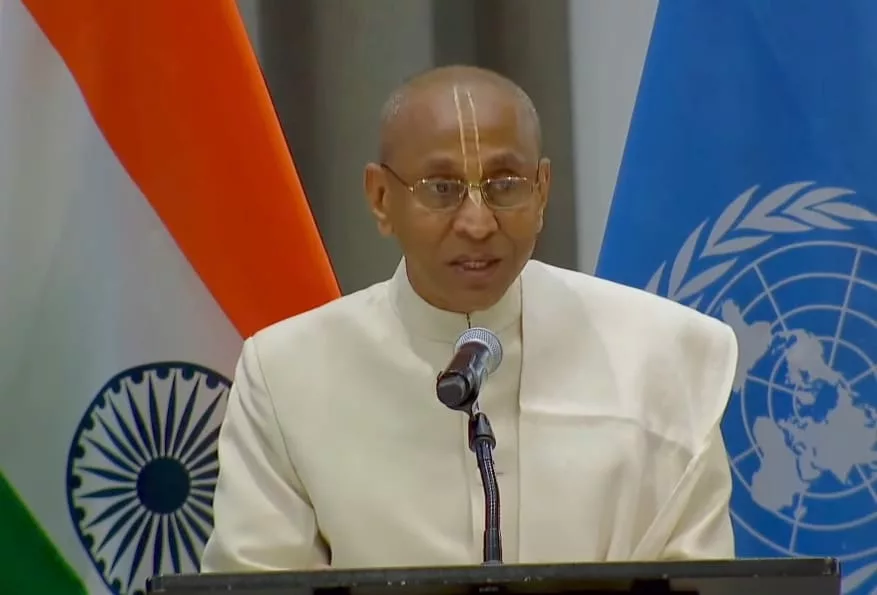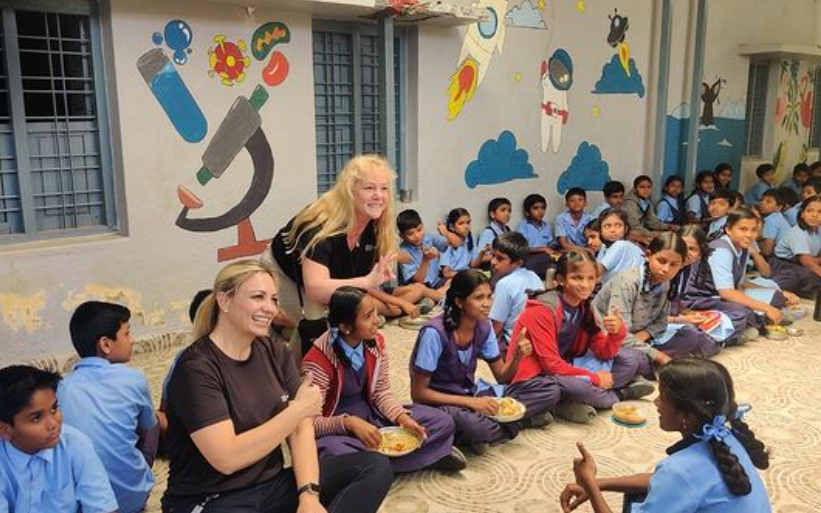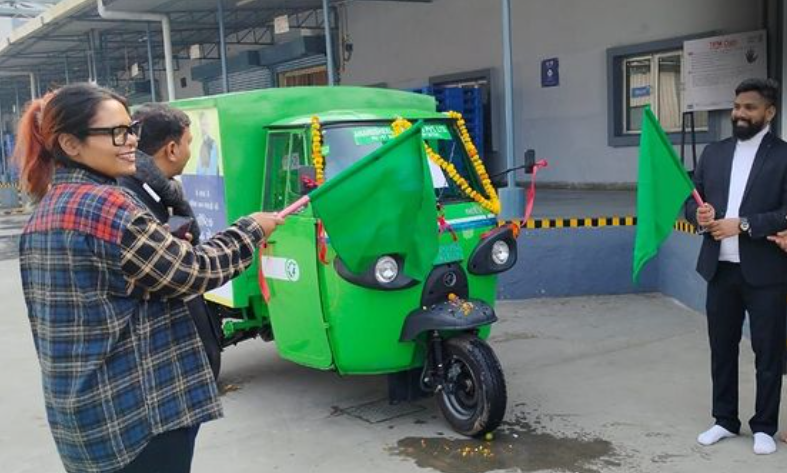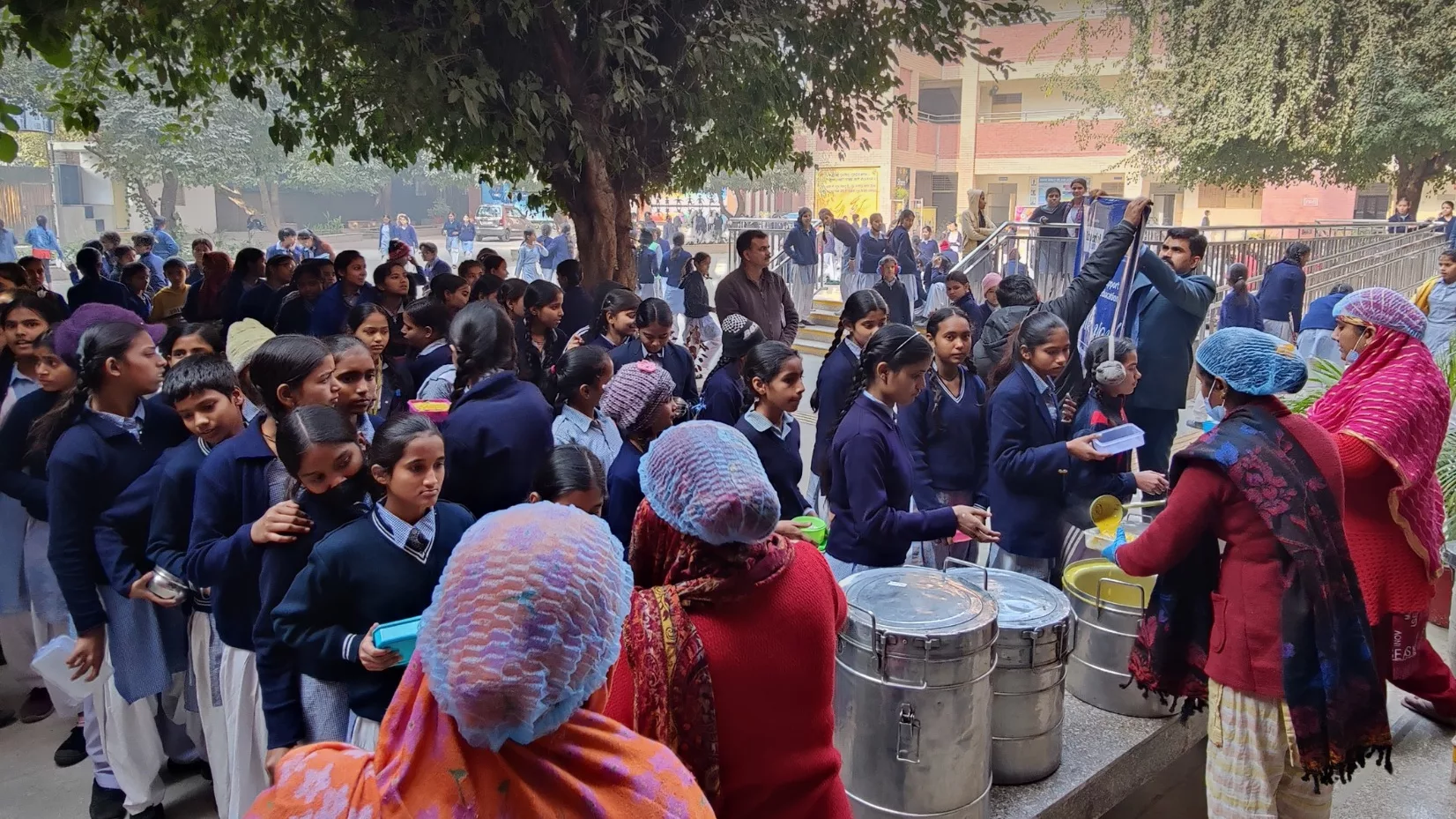India would become hunger-free much before its targeted year of 2047, said Chanchalapathi Dasa, co-founder of The Akshaya Patra Foundation, citing the significant strides made in this area by the world’s most populous country.

Dasa was in the United States of America recently to participate in a United Nations event in New York to commemorate the Akshaya Patra Foundation’s milestone of serving 4 billion meals.
“I think, even well before that [year],” Dasa told the Press Trust of India in an interview, when asked if India could achieve its zero-hunger goal by 2047, the centenary of its independence from British colonial rule.
“Zero hunger will not be such a big challenge for India. It is a challenge. I’m not oversimplifying it, but India has made significant strides,” he said.
Listing the mid-day meal programme, the Anganwadi programme, and other programmes, Dasa said that India had a lot of good programmes to address hunger. “I think we are doing very well for a large country like ours,” he said.
“We have seen that seriousness about feeding children, educating them, and providing nutritious and safe food is there across all parties and governments. That’s a very, very encouraging thing, and we are making great progress in our country, I would say,” he said in response to a question.
Headquartered in Bengaluru, the Akshaya Patra Foundation was recently felicitated at the UN headquarters in New York for achieving the Four Billion Meals Milestone under PM POSHAN Abhiyaan. It began serving meals in 2000, and by 2024, it emerged as the world’s largest school meal programme.

“One-twenty million children are benefited by this programme. This programme had different kinds of implementation methods,” said Dasa.
“The last 20 years has been a cooked meal programme. In every school, a kitchen is set up. There are one, two, or three people involved in cooking food. The school headmaster only supervises this, and the teachers supervise, and they prepare meals and distribute them to the children,” he said.
“In our country, which has a very diverse and very big population of 1.4 billion people, even [in] very well-conceived, very well-funded, very well-planned programmes, the challenge for the government is implementation. In our country, there are very good welfare programmes. The challenge is the implementation because of the complexities that are involved,” he said.

The mid-day meal programme, said Dasa, had done wonders all over the country.
“There is immense talent in our country, [and] that is the strength of our country. That is why we say that this mid-day meal programme is not an expenditure, but an investment in [the] human resource development of [India],” Dasa said.
Referring to the UN meeting, which diplomats from over 40 countries attended, Dasa said that they were all very fascinated to hear about such a large programme of India.

“It is unprecedented; nowhere in the world is it happening [on] this scale, and from the government’s performance point of view and an NGO’s performance point of view, in both respects, there was a lot of appreciation,” he said.
During the event, he said, “We are happy to share the model, our experiences and work with governments. If the government invites us, we are happy to set up a kitchen and run it for them.”
“I think there is a lot of interest, and we will pursue all these requests that have come and these invitations; if some of them are rectified, we’ll be happy to participate and share the Akshay Patra model and our experience for the benefit of children in those countries also,” Dasa said.


